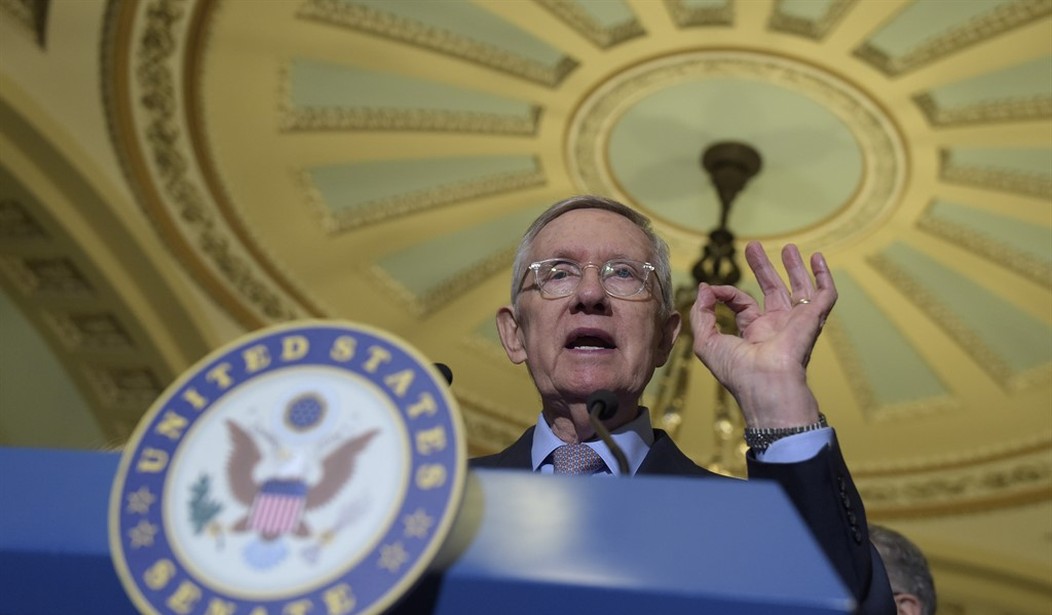Looking back on Monday night’s first presidential debate between Hillary Clinton and Donald Trump, you easily could conclude that there is no problem they couldn’t solve. They promised to defeat ISIS, create millions of jobs, and bring prosperity and happiness to all. That is, if you were willing to give them your vote. While the media may have been giddy with this “blockbuster”/“epic”/“historical” debate between two people who are convinced they deserve being given the authority and power to fix America’s woes – our Founding Fathers would have been horrified at what has become of their great philosophical experiment of a government of limited, defined, diffuse powers.
For decades now, the American public has viewed the role of president far different from the one envisioned by our Founders. Where the drafters of our Constitution sought to empower the President with just enough authority to balance out the Courts and Congress, today the public views the President as if only he or she is the "fixer" for whatever problem ails the nation. “The men who designed our Constitution never thought of the president as America’s ‘national leader,’” wrote Cato Institute’s Vice President Gene Healy in 2008, reacting to campaign rhetoric at the time. “Indeed, for them, the very notion of ‘national leadership’ raised the possibility of authoritarian rule by a demagogue who would create an atmosphere of crisis in order to enhance his power.”
While an "imperial presidency" was not planned by our Founders, they understood human nature sufficiently to foresee its rise if unchecked. To counter this threat, they placed in the hands of a bicameral Congress three fundamental powers: the power to appropriate monies, the power to draft and pass legislation, and the power of oversight. Congress over the decades has become quite adept -- eager, even -- to appropriate money and to legislate (which presidents are just as eager to sign into law).
Recommended
It is, however, the third of the great powers residing in the Congress --oversight -- that should be, but is not, employed effectively to rein in presidential abuses and power grabs. This lack of interest in, or understanding of, how to conduct effective, meaningful, and consistent oversight of presidents -- to ensure they operate within the letter and intent of the legislation passed by the Congress -- has contributed mightily to the dangerous situation in which we now find ourselves, with one president after another engaging in extra-constitutional actions without worry that the Congress will do anything meaningful in response.
This atrophied oversight power was on full display last week when a congressional committee sought to “investigate” why EpiPen manufacturer Mylan dramatically increased the price of this life-saving device.
Rather than focus on the real, underlying problem of how the regulatory environment through which the Food and Drug Administration is causing unconscionable delays in bringing new medicines and competing medical devices to the market, Members of Congress spent their time during the highly publicized hearing on the easy target -- Mylan's CEO. Grabbing a headline with a "gotcha" question to the beleaguered businesswoman obviously was more important to those on the congressional panel than asking serious questions focusing on those factors properly within the responsibility of the Congress to remedy. Important issues not raised, or barely touched on, included the Rube Goldberg-like medical-device approval system in place at the FDA, and troubling ethical issues regarding the CEO's lobbying relationship with her father, a sitting United States Senator from West Virginia.
The list of other congressional "oversight" hearings that similarly have failed to result in any meaningful reform of problematic actions or policies by the Executive Branch is long. Sen. Elizabeth Warren’s recent, made-for-social-media grilling of Wells Fargo CEO John Stumpf, and the “impeachment” hearing on IRS Commissioner John Koskinen come readily to mind, as clear examples of how a once-crucial responsibility has now been reduced to partisan showmanship. This problem is exacerbated by the archaic rules of the House, which limits each Member to a short, five minutes of questioning. All this essentially guarantees that nothing of real substance can ever be developed.
This troubling phenomenon is made far worse by virtue of the fact that for the past century, our federal courts have largely deferred to the other two branches of government to decide for themselves whether their actions are appropriate -- something which each is more than happy to do.
With the current nominees for President of both major political parties on record as favoring a continuation of the same, virtually unchecked executive branch power that has been the hallmark of their predecessors, one can only hope -- vainly, I fear -- that the next Congress finds the oversight backbone that has been absent from Washington for so long.
























Join the conversation as a VIP Member